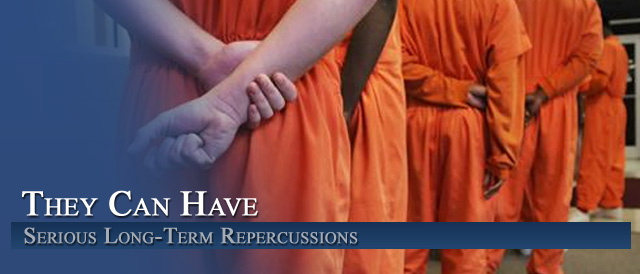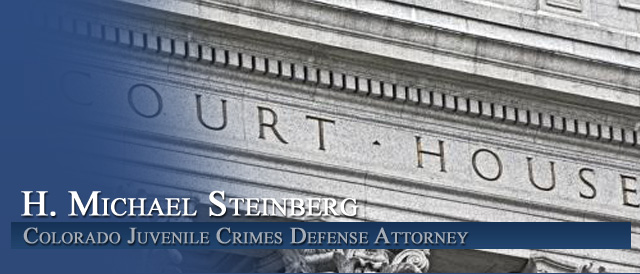




Colorado Juvenile Law – A List of Legal Terms To Help You – List I of II
By H. Michael Steinberg Colorado Juvenile Criminal Defense Lawyer
Statutory – Legal Definitions For The Colorado Childrens Code
19-1-103. Definitions.
(2) “Adjudication” means a determination by the court that it has been proven beyond a reasonable doubt to the trier of fact that the juvenile has committed a delinquent act or that a juvenile has pled guilty to committing a delinquent act. In addition, when a previous conviction must be pled and proven as an element of an offense or for purposes of sentence enhancement, “adjudication” means conviction.
(3) “Adjudicatory hearing” means a hearing to determine whether the allegations of a petition in dependency and neglect are supported by the evidence.
(4) “Adjudicatory trial” means a trial to determine whether the allegations of a petition in delinquency are supported by the evidence.
(11) “Assessment instrument” means an objective tool used to collect pertinent information regarding a juvenile taken into temporary custody in order to determine the appropriate level of security, supervision, and services pending adjudication.
(12) “Basic identification information”, as used in article 2 of this title, means the name, place and date of birth, last-known address, social security number, occupation and address of employment, last school attended, physical description, photograph, handwritten signature, sex, fingerprints, and any known aliases of any person.
(18) “Child” means a person under eighteen years of age.
(24.5) “Community placement” means the placement of a child for whom the state department of human services or a county department has placement and care responsibility pursuant to article 2 or 3 of this title in any licensed or certified twenty-four-hour, non-secure, care and treatment facility away from the child’s parent or guardian. “Community placement” includes, but is not limited to, placement in a foster care home, group home, residential child care facility, or residential treatment facility.
(28) “Consent”, as used in part 3 of article 5 of this title, means voluntary, informed, written consent. When used in the context of confidential intermediaries, “consent” always shall be preceded by an explanation that consent permits the confidential intermediary to arrange a personal contact among biological relatives. “Consent” may also mean the agreement for contact or disclosure of records by any of the parties identified in section 19-5-304 (2) as a result of an inquiry by a confidential intermediary pursuant to section 19-5-304.
(36) “Delinquent act”, as used in article 2 of this title, means a violation of any statute, ordinance, or order enumerated in section 19-2-104 (1) (a). If a juvenile is alleged to have committed or is found guilty of a delinquent act, the classification and degree of the offense shall be determined by the statute, ordinance, or order that the petition alleges was violated.
(40) “Detention” means the temporary care of a child who requires secure custody in physically restricting facilities pending court disposition or an execution of a court order for placement or commitment.
(40.5) “Determinate period”, as used in article 2 of this title, means that the department of human services may not transfer legal or physical custody of a juvenile until the juvenile has completed the period of commitment imposed by the court, unless otherwise ordered by the court; except that the department may release the juvenile on parole prior to completion of the determinate period, as provided in section 19-2-1002.
(43) “Dispositional hearing” means a hearing to determine what order of disposition should be made concerning a child who is neglected or dependent. Such hearing may be part of the proceeding that includes the adjudicatory hearing, or it may be held at a time subsequent to the adjudicatory hearing.
(44) “Diversion” means a decision made by a person with authority or a delegate of that person that results in specific official action of the legal system not being taken in regard to a specific juvenile or child and in lieu thereof providing individually designed services by a specific program. The goal of diversion is to prevent further involvement of the juvenile or child in the formal legal system. Diversion of a juvenile or child may take place either at the prefiling level as an alternative to the filing of a petition pursuant to section 19-2-512 or at the postadjudication level as an adjunct to probation services following an adjudicatory hearing pursuant to section 19-3-505 or a disposition as a part of sentencing pursuant to section 19-2-907.
“Services”, as used in this subsection (44), includes but is not limited to diagnostic needs assessment, restitution programs, community service, job training and placement, specialized tutoring, constructive recreational activities, general counseling and counseling during a crisis situation, and follow-up activities. Services may include restorative justice practices as defined in section 18-1-901 (3) (o.5), C.R.S., as requested by the victim, after being informed about restorative justice practices pursuant to section 24-4.1-303 (11) (g), C.R.S., and as deemed suitable by the probation department or a designated restorative justice practices facilitator. Such practices may include victim-offender conferences, if requested by the victim. Restorative justice practices shall be conducted by facilitators recommended by the district attorney.
(45) “Emancipated juvenile”, as used in section 19-2-511, means a juvenile over fifteen years of age and under eighteen years of age who has, with the real or apparent assent of the juvenile’s parents, demonstrated independence from the juvenile’s parents in matters of care, custody, and earnings. The term may include, but shall not be limited to, any such juvenile who has the sole responsibility for the juvenile’s own support, who is married, or who is in the military.
(48) “Expungement”, as used in section 19-1-306, means the designation of juvenile delinquency records whereby such records are deemed never to have existed.
(53) “Good faith mistake”, as used in section 19-2-803, means a reasonable error of judgment concerning the existence of facts or law that, if true, would be sufficient to constitute probable cause.
(59) “Guardian ad litem” means a person appointed by a court to act in the best interests of a person whom the person appointed is representing in proceedings under this title and who, if appointed to represent a person in a dependency and neglect proceeding under article 3 of this title, shall be an attorney-at-law licensed to practice in Colorado.
(60) “Guardianship of the person” means the duty and authority vested by court action to make major decisions affecting a child, including, but not limited to:
(a) The authority to consent to marriage, to enlistment in the armed forces, and to medical or surgical treatment;
(b) The authority to represent a child in legal actions and to make other decisions of substantial legal significance concerning the child;
(c) The authority to consent to the adoption of a child when the parent-child legal relationship has been terminated by judicial decree; and
(d) The rights and responsibilities of legal custody when legal custody has not been vested in another person, agency, or institution.
(61) “Habitual juvenile offender”, as used in section 19-2-517, means a juvenile offender who has previously been twice adjudicated a juvenile delinquent for separate delinquent acts, arising out of separate and distinct criminal episodes, that constitute felonies.
(62) “Halfway house”, as used in article 2 of this title, means a group care facility for juveniles who have been placed on probation or parole under the terms of this title.
(64) “Imminent placement out of the home”, as used in section 19-1-116 (2), means that without intercession the child will be placed out of the home immediately.
(65) “Independent living” means a form of placement out of the home arranged and supervised by the county department of social services wherein the child is established in a living situation designed to promote and lead to the child’s emancipation. Independent living shall only follow some other form of placement out of the home.
(68) “Juvenile”, as used in article 2 of this title, means a child as defined in subsection (18) of this section.
(69) “Juvenile community review board”, as used in article 2 of this title, means any board appointed by a board of county commissioners for the purpose of reviewing community placements under article 2 of this title. The board, if practicable, shall include but not be limited to a representative from a county department of social services, a local school district, a local law enforcement agency, a local probation department, a local bar association, the division of youth corrections, and private citizens.
(70) “Juvenile court” or “court” means the juvenile court of the city and county of Denver or the juvenile division of the district court outside of the city and county of Denver.
(71) “Juvenile delinquent”, as used in article 2 of this title, means a juvenile who has been found guilty of a delinquent act.
(73) (a) “Legal custody” means the right to the care, custody, and control of a child and the duty to provide food, clothing, shelter, ordinary medical care, education, and discipline for a child and, in an emergency, to authorize surgery or other extraordinary care. “Legal custody” may be taken from a parent only by court action.
(b) For purposes of determining the residence of a child as provided in section 22-1-102 (2) (b), C.R.S., guardianship shall be in the person to whom legal custody has been granted by the court.
(76) “Mental health hospital placement prescreening” means a face-to-face mental health examination, conducted by a mental health professional, to determine whether a child should be placed in a facility for evaluation pursuant to section 27-65-105 or 27-65-106, C.R.S., and may include consultation with other mental health professionals and review of all available records on the child.
(77) “Mental health professional” means a person licensed to practice medicine or psychology in this state or any person on the staff of a facility designated by the executive director of the department of human services for seventy-two-hour treatment and evaluation authorized by the facility to do mental health hospital placement prescreenings and under the supervision of a person licensed to practice medicine or psychology in this state.
(82) (a) “Parent” means either a natural parent of a child, as may be established pursuant to article 4 of this title, or a parent by adoption.
(b) “Parent”, as used in sections 19-1-114, 19-2-514, and 19-2-515, includes a natural parent having sole or joint custody, regardless of whether the parent is designated as the primary residential custodian, or a parent allocated parental responsibilities with respect to a child, or an adoptive parent. For the purposes of section 19-1-114, “parent” does not include a person whose parental rights have been terminated pursuant to the provisions of this title or the parent of an emancipated minor.
(84) “Physical custodian”, as used in section 19-2-511, means a guardian, whether or not appointed by court order, with whom the juvenile has resided.
(85) “Placement out of the home” means placement for twenty-four-hour residential care in any facility or center operated or licensed by the department of human services, but the term does not include any placement that is paid for totally by private moneys or any placement in a home for the purposes of adoption in accordance with section 19-5-205. “Placement out of the home” may be voluntary or court-ordered. “Placement out of the home” includes independent living.
(87) “Protective supervision” means a legal status created by court order under which the child is permitted to remain in the child’s home or is placed with a relative or other suitable person and supervision and assistance is provided by the court, department of human services, or other agency designated by the court.
(89) “Reasonable efforts”, as used in articles 1, 2, and 3 of this title, means the exercise of diligence and care throughout the state of Colorado for children who are in out-of-home placement, or are at imminent risk of out-of-home placement. In determining whether it is appropriate to provide, purchase, or develop the supportive and rehabilitative services that are required to prevent unnecessary placement of a child outside of a child’s home or to foster the safe reunification of a child with a child’s family, as described in section 19-3-208, or whether it is appropriate to find and finalize an alternative permanent plan for a child, and in making reasonable efforts, the child’s health and safety shall be the paramount concern. Services provided by a county or city and county in accordance with section 19-3-208 are deemed to meet the reasonable effort standard described in this subsection (89). Nothing in this subsection (89) shall be construed to conflict with federal law.
(90) “Receiving center”, as used in article 2 of this title, means a facility used to provide temporary detention and care for juveniles by the department of human services pending placement in a training school, camp, or other facility.
(92) “Residential community placement”, as used in article 2 of this title, means any placement for residential purposes permitted under this title except in an institutional facility directly operated by, or a secure facility under contract with, the department of human services and except while a juvenile is under the jurisdiction of the juvenile parole board.
(93) “Residual parental rights and responsibilities”, as used in article 3 of this title, means those rights and responsibilities remaining with the parent after legal custody, guardianship of the person, or both have been vested in another person, agency, or institution, including, but not necessarily limited to, the responsibility for support, the right to consent to adoption, the right to reasonable parenting time unless restricted by the court, and the right to determine the child’s religious affiliation.
(94) “Responsible person”, as used in part 3 of article 3 of this title, means a child’s parent, legal guardian, or custodian or any other person responsible for the child’s health and welfare.
(94.1) “Restorative justice” means those practices that emphasize repairing the harm to the victim and the community caused by criminal acts. Restorative justice practices may include victim-offender conferences attended voluntarily by the victim, a victim advocate, the offender, community members, and supporters of the victim or the offender that provide an opportunity for the offender to accept responsibility for the harm caused to those affected by the crime and to participate in setting consequences to repair the harm. Consequences recommended by the participants may include, but need not be limited to, apologies, community service, restoration, and counseling. The selected consequences are incorporated into an agreement that sets time limits for completion of the consequences and is signed by all participants.
(94.5) “Screening team” means the person or persons designated, pursuant to rule 3.7 of the Colorado rules of juvenile procedure, by the chief judge in each judicial district or, for the second judicial district, the presiding judge of the Denver juvenile court to make recommendations to the juvenile court concerning whether a juvenile taken into temporary custody should be released or admitted to a detention or shelter facility pursuant to section 19-2-508.
(95) “Sentencing hearing”, as used in article 2 of this title, means a hearing to determine what sentence shall be imposed on a juvenile delinquent or what other order of disposition shall be made concerning a juvenile delinquent, including commitment. Such hearing may be part of the proceeding that includes the adjudicatory trial, or it may be held at a time subsequent to the adjudicatory trial.
(96) “Services”, as used in section 19-2-303, may include, but is not limited to, provision of diagnostic needs assessment, general counseling and counseling during a crisis situation, specialized tutoring, job training and placement, restitution programs, community service, constructive recreational activities, day reporting and day treatment programs, and follow-up activities.
(98) “Shelter” means the temporary care of a child in physically unrestricting facilities pending court disposition or execution of a court order for placement.
(101.5) “Staff secure facility” means a group facility or home at which each juvenile is continuously under staff supervision and at which all services, including but not limited to education and treatment, are provided on site. A staff secure facility may or may not be a locked facility.
(101.7) “Standardized mental illness screening” means the mental illness screening conducted using the juvenile standardized screening instruments and the procedures adopted pursuant to section 16-11.9-102, C.R.S.
(103.7) “Status offense” shall have the same meaning as is defined in federal law in 28 CFR 31.304, as amended.
(105) “Technical violation”, as used in section 19-2-803, means a reasonable, good faith reliance upon a statute that is later ruled unconstitutional, a warrant that is later invalidated due to a good faith mistake, or a court precedent that is later overruled.
(106) “Temporary holding facility” means an area used for the temporary holding of a child from the time that the child is taken into temporary custody until a detention hearing is held, if it has been determined that the child requires a staff-secure setting. Such an area must be separated by sight and sound from any area that houses adult offenders.
(111) “Unfounded report”, as used in part 3 of article 3 of this title, means any report made pursuant to article 3 of this title that is not supported by a preponderance of the evidence.
(112) “Victim”, as used in article 2 of this title, means the party immediately and directly aggrieved by the juvenile, that party’s spouse, the party’s parent, sibling, or child who is living with the party, a victim compensation board that has paid a victim compensation claim, a person or entity who has suffered losses because of a contractual relationship with such party, including, but not limited to, an insurer, or because of liability under section 14-6-110, C.R.S., or, in the absence of any of the above, the state.
Other Articles of Interest:
- Probation – Terms – Release – Revocation 19-2-925
- Juvenile Probation Officers – Powers and Duties 19-2-926
- Colorado Juvenile Law – A List of Legal Terms To Help You – List II of II
- Sentencing – Requirements Imposed on Parents 19-2-919
- Colorado Criminal Law – Did My Child Just Confess At The School?












